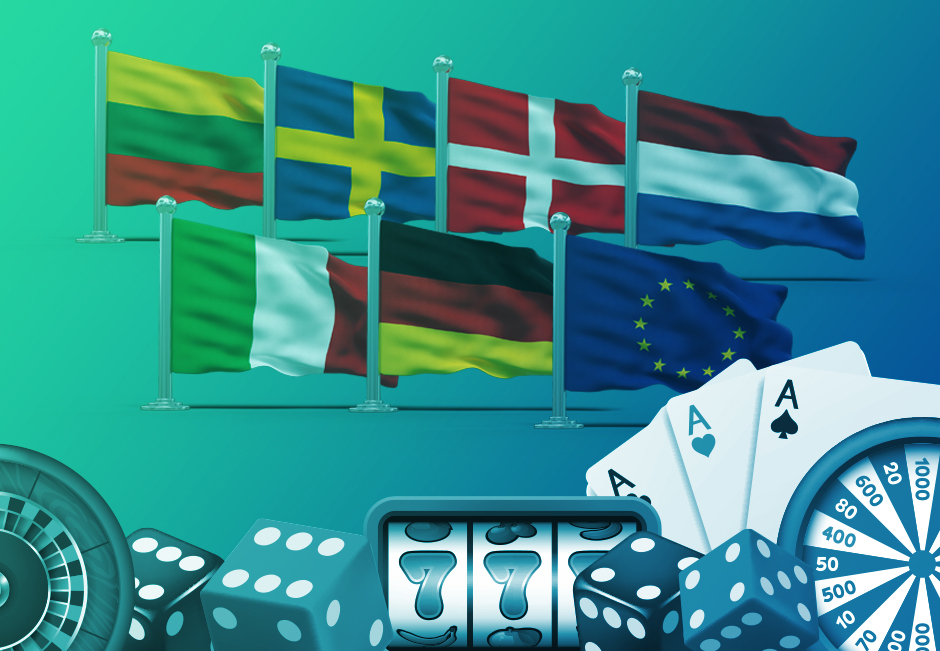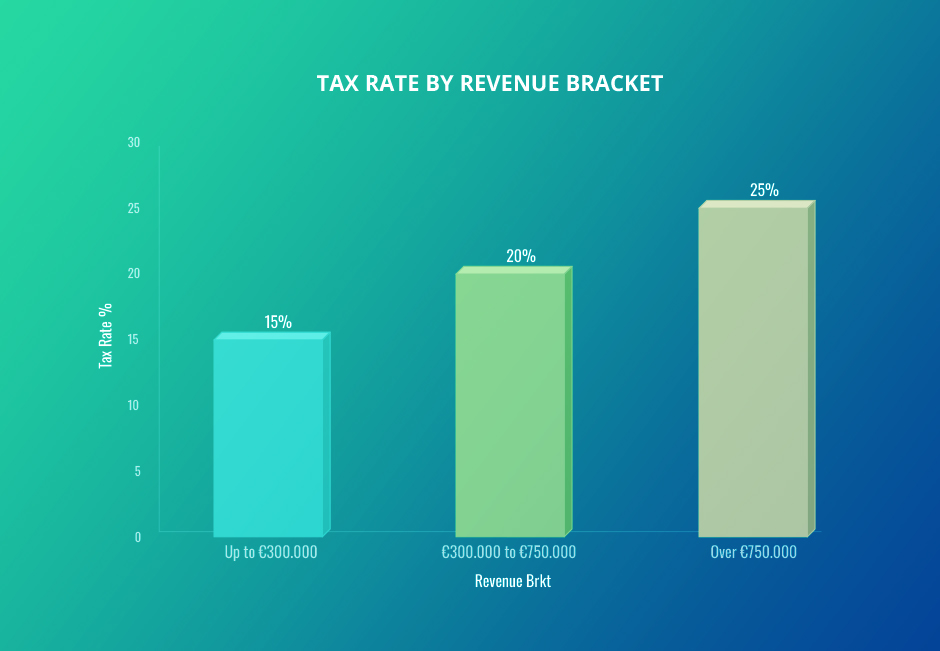
EU iGaming in 2025: Limits, Levies & Legal Loopholes Explained

A wave of new rules, rising taxes, and controversial legal battles is reshaping how – and where – Europeans gamble online. 2025’s new laws in the EU bring sharper limits and higher costs for operators and players, as some countries target loopholes while others work up enforcement.
What’s New in EU iGaming Regulations
The first half of 2025 has brought major regulatory shifts across Europe’s leading iGaming markets. Notable changes include reducing maximum stakes for slots and other casino games. While some countries, like Germany, have introduced maximum monthly deposit limits.
Here are some other significant changes that have been introduced in the sector:
- New player limits, higher operator levies, and stricter advertising rules have been introduced across key EU markets in 2025.
- Malta’s so-called “legal shield” for operators faces attack from the EU, while Germany and the Netherlands tighten market controls.
- Italy, Lithuania, and the United Kingdom roll out new compliance and consumer protection measures.
- Legal grey zones and market loopholes, including issues around cross-border enforcement and ad tech, remain under scrutiny.
Why the European iGaming Market Changes
Following a surge in online gambling since 2020, and national reviews, lawmakers across the EU are focusing on safer policies. A shift toward consumer protection and public finances has made 2025 a record year for gambling reforms.
We’ve seen a clear shift toward responsible gambling. For example, Switzerland and Liechtenstein implemented a cross-border exclusion list in January.
There has been a focus on problem gambling research. The UK was among the most active countries in this field. It introduced a new Consumer Voice program to gain more insight into gamblers’ views, motivations, and behaviors.
On the other hand, operators and players alike face a transformed landscape. That includes tighter controls, fewer options, and major uncertainty around which sites can legally operate in each country.
Trending: New Player Limits and Stricter Age Rules
Europe’s biggest markets have taken bold steps to protect players, especially younger adults, from potential gambling harms. Betting limits, higher operator fees and taxes, and stricter advertising rules have also been introduced in leading EU gambling markets.
United Kingdom
On April 6, 2025, the UK launched a new gambling levy. Operators must now contribute between 0.1% and 1.1% of their Gross Gaming Yield (GGY). These funds will support research, prevention, and treatment of gambling harm. More regulations have been recently introduced, such as:
| Regulation | Description |
|---|---|
| Online Slots Limits | Players 25 and over can bet up to £5 per spin, while those aged 18 – 24 have a stricter limit of up to £2 per spin. |
| Deposit Limits | As of October 31, 2025, players must set deposit limits before their first deposit. Casinos and sportsbooks must encourage users to review these limits every six months. |
| Bonus Restrictions | Effective December 19, 2025, operators won’t be able to offer promotions with wagering requirements higher than 10x the bonus amount. |
Besides the new rules to boost operator transparency, the UK Gambling Commission also plans stricter software supplier monitoring. Developers providing games to unlicensed operators will be targeted. There are no further details for now, but this important step will make meeting regulatory standards equal for everyone, not only for operators.
Germany
This year brought important changes in German gambling law. In February, the state parliament of Baden-Württemberg allowed residents to play online blackjack and roulette through the state-owned Toto-Lotto GmbH. Consequently, online table games are now part of a state monopoly.
A progressive tax regime was also introduced. Operators will be taxed as follows:

Access to online table games is now live, but the reform comes with added restrictions. Maximum bet limits of €1 per spin were introduced, and restrictions on table game stakes will follow. According to the Fourth Interstate Gambling Treaty (GlüNeuRStV), spin delays of five seconds are expected not only for slots but also for roulette games.
The Federal Gambling Authority (GGL) will set monthly cross-provider deposit caps of €1,000 per player as well.
Netherlands
In early 2025, the Dutch Ministry of Justice introduced a stringent policy for online gambling. It focused on player protection and better regulation. New measures include a universal deposit and loss limit for all players. Stricter affordability checks will be required. There will also be a default ban on gambling ads unless operators meet higher standards.
The legal age for high-risk games may rise from 18 to 21. Local regulator, Kansspelautoriteit, (KSA) can now exercise undercover audits and suspend licenses. It can require payment providers to ban illicit sites.
Local media confirms that Google now prioritizes licensed operators in search results. A new portal lets users anonymously report illegal gambling activities. Here are more details:
| Name | Meld Vals Spel |
|---|---|
| What is it? | A reporting system for illegal/unsafe gambling activities. |
| Who launched it? | The Netherlands Online Gambling Association (NOGA) and the Vergunde Nederlandse Online Kansspelaanbieders (VNLOK). |
| Who can use it? | Players, licensed operators, partners, stakeholders, and association members. |
| What can you report? | Illegal sites, unsafe practices, player protection issues, excessive bonuses, and underage gambling. |
| Website | www.meldvalsspel.nl |
Lithuania
July 1 marked a new milestone for Lithuania’s gambling regulator. A near-total ad ban is now in place until 2028. Only sports sponsorships and event broadcasts are exempt. The legal gambling age changed from 18 to 21, and financial institutions are now legally obliged to suspend payments to unlicensed operators. Non-compliant providers face fines of up to €3,800.
Italy
Italy is introducing a new online gambling licensing and regulation regime. In December 2024, the Italian Customs and Monopolies Agency (ADM) launched a concession program for online gambling. The scheme will initially last 9 years, and each license costs €7 million. It’s the highest licensing fee in the European Union, with an additional 3% annual tax on net revenue.
The ADM has launched the PIAO 2025 – 2027 national plan to enforce AI-driven compliance tools. Here are the plan’s most important steps:
- Modern licensing procedures – Operators will comply with stricter requirements, such as self-declarations and improved compliance checks.
- More inspections – Betting shops, bingo halls, VLT venues, and online platforms will be subject to regular and random checks.
- Anti-fraud measures – Transaction monitoring and cooperation with the Financial Intelligence Unit and the Financial Police.
- Real-time monitoring – An Integrated Control System (SIC) and automated compliance through AI will launch.
- Data transparency – Introduction of open data portal with sector statistics and KPIs.
The regulator also reviewed the 2018 gambling ad ban, questioning its relevance. According to the ADM, new, stricter licensing and transparency measures must take effect across the market.
Blacklists, Ad Bans, and Payment Blocks
As governments tighten rules, they make it much harder for illegal or unlicensed sites to operate. Their efforts also make it more difficult for players to move money in or out.
- Germany , Lithuania, Netherlands: Blocking payment providers from processing transactions to unlicensed platforms. Only “whitelisted” brands can accept deposits.
- Sweden: Expanding the ban on credit card gambling. Licensed online brands must prevent deposits via credit, not just for land-based gaming.
- Lithuania: Online ads are outlawed, and there are heavy fines for media or affiliates.
Malta’s “Legal Shield” Under Review
For years, Malta-based online casinos relied on local laws to fend off lawsuits and enforcement from other EU countries. Its days may be numbered. In June, the European Commission launched infringement proceedings against Malta’s legal protections, known as Bill 55 or Article 56A.
If the country loses in court, MGA-licensed operators could be exposed to claims and legal action from other EU states. This could impact players worldwide who use Malta-licensed sites, reducing the options for cross-border iGaming.

